|

On eBay Now...
Letter Signed Autograph Henri Massis (Politics Journalism) 1929 Action French For Sale
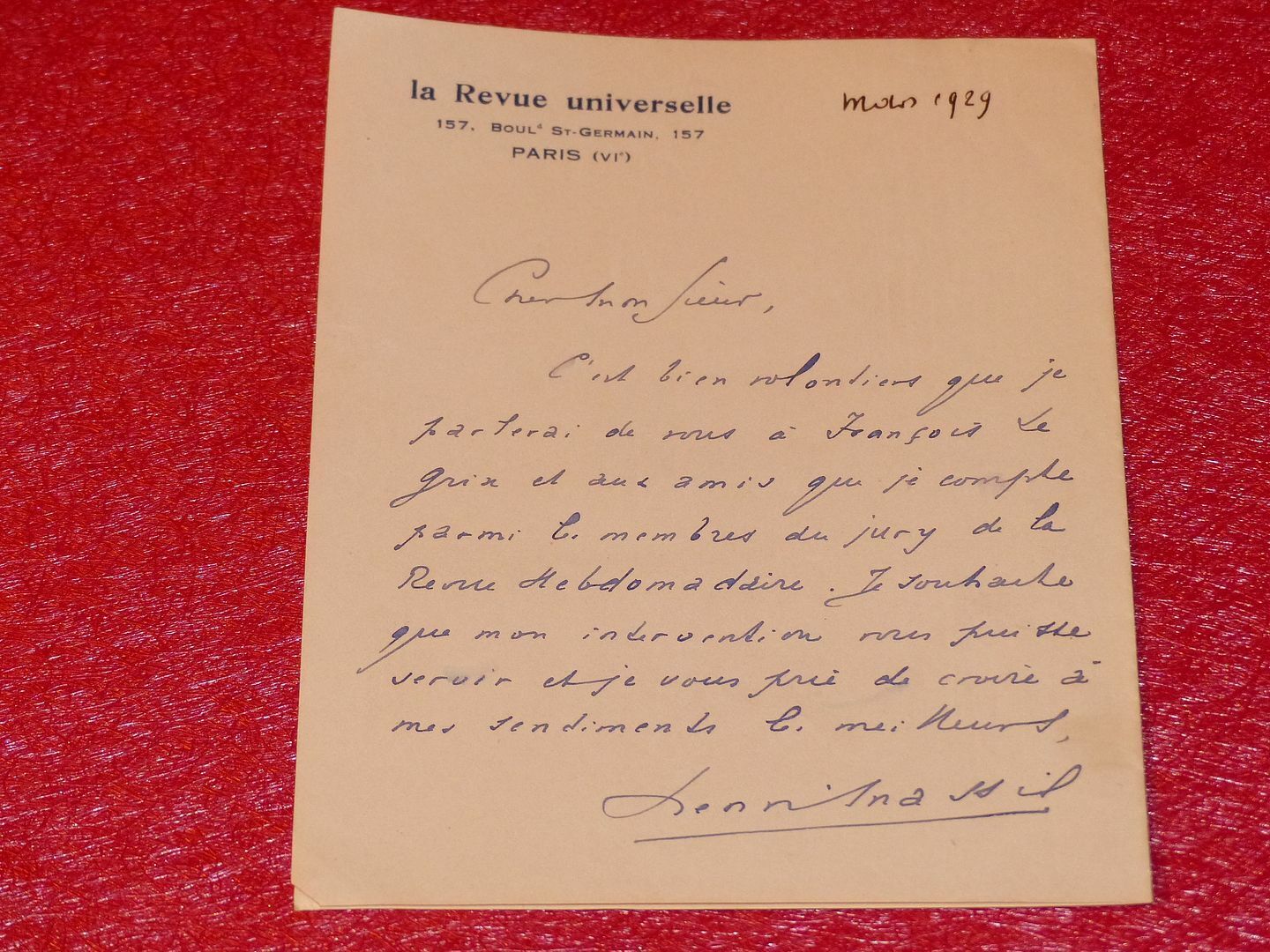
When you click on links to various merchants on this site and make a purchase, this can result in this site earning a commission. Affiliate programs and affiliations include, but are not limited to, the eBay Partner Network.

Letter Signed Autograph Henri Massis (Politics Journalism) 1929 Action French:
$84.40
[AUTOGRAPH LETTER - JOURNALIST & FRENCH POLITICIAN XIX/XXthFRANCAISE ACTION - COLLABORATION]
-
Letterhead of La Revue UniverselleSigned
\"It is with great pleasure that I will speak of you to François Le Grix and to the friends whom I count among the members of the jury of the weekly magazine, I hope that my intervention can be useful to you...\"
Henry Massis1886-1970
Henry Massis Armchair 32 from the French Academy
Writer, opinion journalist, literary critic, literary historian French action Henri Massis, born Mars 21, 1886 in the 18th arrondissement of Paris and died April 16, 1970 in the 14th arrondissement, is a literary critic, political essayist and literary historian. He created reviews like Roseau d\'Or and the Universal Review which he set up with his friend Jacques Bainville, and is known for his participation in Action Française.
He held positions in the Vichy administration but, not being part of the ultras of the collaboration, he is little worried at the release. He was elected to the French Academy in 1960.
Biographical elementsAn intellectual of the Maurrassian Catholic right
A pupil of Alain at the Condorcet high school, Henri Massis pursued a degree in philosophy at the Sorbonne in letters which he obtained in 1908. During his studies, he published his first work of literary criticism, Comment Émile Zola composing his novels, then noticed by Émile Faguet as a promising start. Politically, the JEUNE Massis was then Barrèsien. Massis was very early attracted by Charles Maurras and Action Française. Fervent polemicist, he rejects the diffusion of German culture at the Sorbonne and the decline of classical culture (investigation with Alfred de Tarde under the pseudonym of Agathon). A second “Agathon” followed in 1913: \"The Young People of Today\" whose taste for action, patriotic faith, he applauds the Catholic revival and political realism.
During the 1920s, Massis renewed this type of criticism about the writers of his time. like André Gide or Romain Rolland. In the first he criticizes, in particular, his “satanic” mores and his attacks against the family institution (Nourritures Terrestres); he denounces the socialist leanings of the second and sees in him a traitor who makes a pact with \"the enemy\".
Massis has long devoted himself to journalism. He made his debut at L\'Opinion before becoming editor chief at the Revue universelle, close to Action française, from 1920 to 1936, then director of this same newspaper from 1936 to 1944. He attends the banquets of the Fustel de Coulanges circle, also close to the Action française; he chaired it in 1935.
To counter the condemnation of Italy by the League of Nations in 1935 after the invasion of Ethiopia, Massis, in favor of an agreement with the fascist regime of Mussolini, made himself the spokesman of a certain right when he wrote the Manifesto of French Intellectuals for the Defense of the West and Peace in Europe. With his friend Robert Brasillach, he published a work glorifying Francoism: Les cadets de l\'Alcazar. In 1938, he visited Portugal and expressed his support for the dictator Salazar. As with his colleagues from Action Française, Massis\' Germanophobia made him condemn — logically — the Hitler regime (Chefs, 1939; consisting of three political dialogues with Franco, Salazar and Mussolini).
Faced with the NRF, Henri Massis tries to set up with Jacques Maritain a sort of Catholic NRF with the Roseau d\'Or collection published by Plon.
JJournalist and Petainist under the Occupation
Staff officer of General Charles Huntziger during the \"phony war\", he was, after the armistice, briefly in charge of mission in the staff of General Maxime Weygand - there he won a second Croix de Guerre - then in the office of the Minister for Veterans and the Family Jean Ybarnégaray: he then affirmed that he wanted to \"achieve a work of recovery\" for young people, but avoiding \"anything that could appear to be copied\": \"No import of faith, patriotism, no ideal coming from beyond our borders, above all!\"
The Universal Review which he directs settles in Vichy and there defends the Vichy regime and its National Revolution. He gave conferences, literary or more political, such as in 1943 in Lyon a conference on Russia and the West, under the auspices of the Ministry of Information and the committee of the exhibition \"Bolshevism against Europe\". Massis was appointed, in 1941, member of the National Council set up by Vichy (he was a member of its commission for the constitution in 1941 and of its commission for the study of youth issues in 1942), member in 1943 of the superior council of the compulsory labor and youth camps chaired by Abel Bonnard. He obtains the Francisque. Project manager at Georges Lamirand\'s youth secretariat, he successfully opposed the establishment of a \"single youth\" organization wanted by the collaborationists.
He is subject to a month of administrative detention upon release. His name appears on the List of Undesirable Writers compiled by the National Writers\' Committee in 1944. However, in retreat, he is not worried at the time of the purification either.
Academician in 1960After the Second World War, ruined, Henri Massis, his bedridden wife, survived in Saint-Germain-des-Prés thanks to a very modest job as a reader at Plon. He devoted himself in particular to biographical studies, taking an interest in, among others, Renan, Barrès, Proust and Salazar. Candidate declared in 1955, he was elected on May 19, 1960 member of the French Academy and, thanks to the charitable support of François Mauriac, received in June 1961.
Massis was then a member of the patronage committee of a Parisian politico-literary circle born in 1948 around the Librairie des Amitiés Françaises of Doctor Louis Rousseau, the Cercle des Amitiés Françaises, alongside Academicians (Henry Bordeaux, Jérôme Carcopino, Daniel -Rops, Antoine de Lévis-Mirepoix, Maurice Genevoix), intellectuals like Daniel Halévy or Gabriel Marcel, Edmond Michelet, of Bishop Rupp, of Pastor Marc Boegner.
Massis is president of an association founded in 1951, the Franco-Spanish friendships, with as vice-presidents Gustave Thibon and the royalist banker Marcel Wiriath and as honorary president general and academician Maxime Weygand. Doctor Rousseau is on his committee. The circle of French friendships gave a dinner in his honor for his election to the Academy in December 1960, in which took part in particular Admiral Moreau, François Piétri, the Duke of Castries, the Duke Joseph Pozzo di Borgo, René Gillouin, André Thérive, Louis Salleron, Jacques Hérissay, president of the association of Catholic writers. He was elected president of this circle in Mars 1962, with Gilbert Tournier and Pierre Masquelier as vice-presidents. He frequents another association, the Union of Independent Intellectuals.
He remained faithful to the “integral nationalism” of Action Française; he took part, in favor of the imprisoned Charles Maurras, in a meeting organized by Aspects de la France in December 1949, with Pierre Boutang, Gabriel Marcel, Daniel Halévy, Colonel Rémy, watched over the remains of Maurras in 1952, collaborated with Aspects de la France in the 1950s and 1960s and with La Nation française, took part in the annual banquet of the National Restoration (France), accepted to sponsor the Center for National Studies in 1962, which intended \"to teach the work of the masters of French nationalism and the Christian order\". He also remains faithful to Marshal Pétain. Member of the Honorary Committee of the Association for defending the memory of Marshal Pétain at its foundation in 1951, he willingly participates in its meetings and at anniversary masses. He defends the thesis of the \"Bouclier\" according to which Marshal Pétain would have protected the French by opposing the German demands. He is one of the most faithful Academicians in the 1960s and was designated a statutory honorary member in 1967.
The traditionalist Catholic magazine, Itineraries, to which he collaborated, published a special issue in his honor in 1961. He chaired the congress of the Catholic City of the counter-revolutionary Jean Ousset in 1960. During the controversies that opposed the Catholic City to its detractors in the early 1960s, Massis, as well as Weygand, Marshal Alphonse Juin, Colonel Rémy, Gustave Thibon, Michel de Saint-Pierre, Gilbert Tournier and others sign a collective declaration in his favor in 1962.
During the Algerian war, he signed the manifesto of French intellectuals for the resistance abandoned in October 1960 in reaction to the Manifesto of 121.
The Universal Review Politics, RoyalistFounding date 1920Date of last issue 1944Publication director Jacques BainvilleChief Editor Henry Massis
La Revue universelle (Paris, 1920-1944) is a French periodical founded by Jacques Bainville (director) and Henri Massis (editor-in-chief), following the publication of the manifesto \"For a party of intelligence\" in Le Figaro on July 19, 1919. The magazine\'s program was: \"To bring together all that, in the world, takes sides against destruction, to strengthen and extend the relations between groups devoted to the cause of the spirit.\"
It was a nationalist review (royalist and Catholic) whose editorial line was close to that of L\'Action française, including Charles Benoist, Marie de Roux, Robert Havard de La Montagne, René Johannet, Georges Valois, Firmin Bacconnier, Pierre-Antoine Cousteau, Georges Gaudy, Gustave Thibon, Pierre Gaxotte, Claude Roy, Gonzague de Reynold, then after 1941, Pierre Boutang and Raoul Girardet. The Universal Review was particularly interested in foreign policy.
In addition to its two founders, the journal\'s main contributors were: Jacques Maritain, in charge of the philosophical section (early 1920s), Charles Maurras, Maurice Vaussard and Henri Gouhier.
The sections dedicated to art, literature and philosophy written by Léon Daudet, Thierry Maulnier, André Rousseaux and Robert Brasillach, have always been remarkable according to Eugen Weber, historian. The political articles reflect the politics of Action Française.
During the 1930s, the Revue universelle marked a certain support for authoritarian regimes and in particular for Salazar (in particular under the pen of Massis). On the other hand, from 1930, in the wake of Action Française, it led a permanent campaign against German rearmament, the revival of Germanism and the appearance of Nazism. It is one of the first important publications to have denounced from the outset the threats of Hitlerism and the unpreparedness of democracies in the face of an inevitable conflict with Germany.
After the death of Bainville (1936), she found herself in an increasingly narrow intellectual dependence with the French Action, and relays the campaigns of the royalist movement in favor of the preventive occupation of the Rhineland, the alliance with Fascist Italy and a continuous policy of rearmament. Strongly shaken by the French defeat, she moved to Vichy from 1940, supported Pétain, and opposed both the Resistance and collaborationism; it aligns itself with the positions of the Vichy regime.
-
1 sheet of white paper, folded in the center forming 4pp.,1 handwritten page
(folded: about 14x11cm)
Paris, Mars 1929 -
[From Georges or Louis Boulay]
-
Good condition
see always, combined shipping costs in case of multiple purchases...
He gave conferences, literary or more political, such as in 1943 in Lyon a conference on Russia and the West, under the auspices of the Ministry of Information and the committee of the exhibition \"Bolshevism against Europe\". Massis was appointed, in 1941, member of the National Council set up by Vichy (he was a member of its commission for the constitution in 1941 and of its commission for the study of youth issues in 1942), member in 1943 of the superior council of the compulsory labor and youth camps chaired by Abel Bonnard. as vice-presidents Gustave Thibon and the royalist banker Marcel Wiriath and as honorary president general and academician Maxime Weygand. Doctor Rousseau is on his committee. The circle of French friendships gave a dinner in his honor for his election to the AcadHe gave conferences, literary or more political, such as in 1943 in Lyon a conference on Russia and the West, under the auspices of the Ministry of Information and the committee of the exhibition \"Bolshevism against Europe\". Massis was appointed, in 1941, member of the National Council set up by Vichy (he was a member of its commission for the constitution in 1941 and of its commission for the study of youth issues in 1942), member in 1943 of the superior council of the compulsory labor and youth camps chaired by Abel Bonnard. as vice-presidents Gustave Thibon and the royalist banker Marcel Wiriath and as honorary president general and academician Maxime Weygand. Doctor Rousseau is on his committee. The circle of French friendships gave a dinner in his honor for his election to the Acad

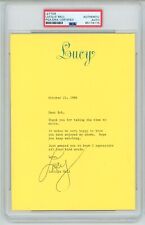
Lucille (Lucy) Ball ~ Signed Autographed Letter ~ PSA DNA Encased $395.00
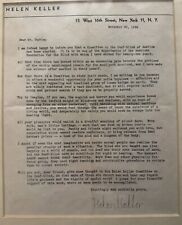
Helen Keller Handwritten Signed Letter $600.00
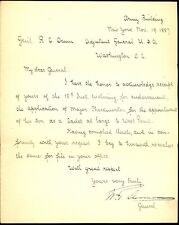
William Tecumseh Sherman Signed Auto Autographed Letter 1887 JSA $775.00
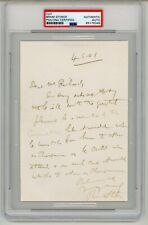
Bram Stoker ~ Signed Autographed Letter Dracula Author ~ PSA DNA Encased $2995.00
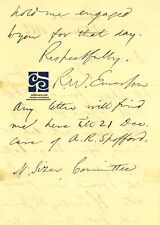
RALPH WALDO EMERSON - AUTOGRAPH LETTER SIGNED - 1852 - LECTURING - PHRENOLOGY $1850.00
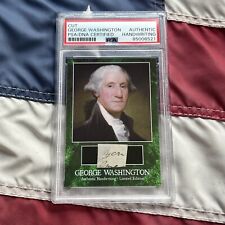
George Washington Handwritten Word Removed From an Autograph Letter Signed $550.00
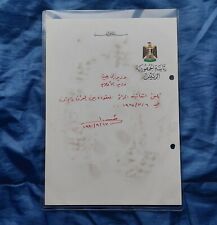
Saddam Hussein Autograph Handwritten Signed Letter Nulify IRAQ/IRAN Agreement $624.99
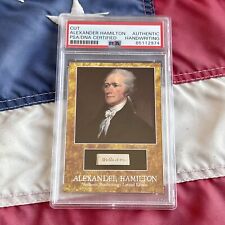
Alexander Hamilton Handwritten Word Removed From a PSA Autograph Signed Letter $250.00
|